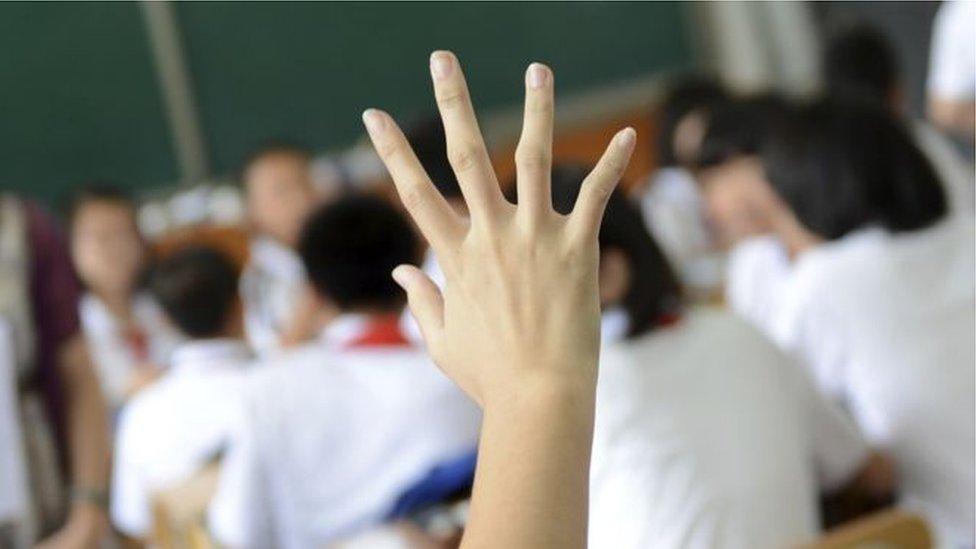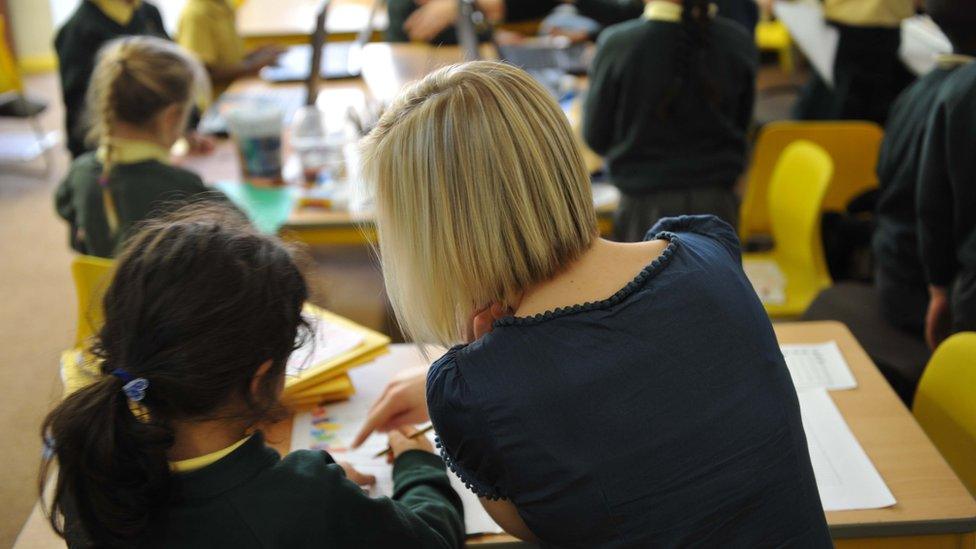Second teachers' union 'prepared to walk out' over pay
- Published
- comments

More than 90% of SSTA members are prepared to take industrial action for an above inflation pay award
A second teaching union has signalled its willingness to take industrial action over pay.
The Scottish Secondary Teachers' Association (SSTA) has surveyed members over the 2017 pay deal and on tactics to improve the settlement for 2018.
It found 96% were prepared to take industrial action, with 64% willing to walk out on strike.
The SSTA survey was carried out in December and received 1,359 responses.
Two weeks ago Scotland's largest teaching union, the EIS, said it was ready for industrial action over pay, warning a below inflation rise would be unacceptable.
The 2018/19 pay settlement for Scotland's teachers will be decided by the Scottish Negotiating Committee for Teachers (SNCT), which includes members from teaching organisations, councils and the Scottish government.
Last month a backdated deal on teachers' pay for 2017 was reached, including a 1% pay rise backdated to April 2017, and a further 1% uplift from January until the end of March 2018.
Of those teachers who responded to the SSTA survey, 77% said they were unhappy with this settlement, and 89% said it would not encourage teachers to stay in the profession.
Seamus Searson, general secretary of the SSTA said many of his members were willing to take strike action if necessary to secure a better deal for 2018.
He said: "At this early stage 96% of SSTA members are prepared to take industrial action for an above inflation pay award in 2018. 64% were prepared to take strike action with a further 32% prepared to take action short of strike action"
"The survey showed 90% of teachers believed the current pay increase would not encourage teachers to remain in the profession."
'Leaving the profession'
A number of members highlighted their own experience in the the union's survey.
One said: "The demands and unrealistic expectations of teachers are no longer worth the mediocre pay. I'll be leaving the profession as soon as I can find a suitable job".
Another said: "I am now poorer than when I started the job in 2007."
Finance Secretary Derek Mackay has committed to lifting the 1% public sector pay cap and providing for a 3% pay rise for NHS staff, police, teachers and others earning up to £30,000 and 2% for those earning more than £30,000.
But one teacher said levels of pay were insulting. "The proposed pay increase does not reflect the demands of the teaching profession. The proposal is insulting in terms of workload, constant development work and does not show the importance of the teacher and their contribution to society."
SSTA president Kevin Campbell added: "SSTA members care passionately about the young people they teach and have committed huge effort to give them every opportunity.
"This commitment needs to be recognised in terms of pay.
"Unfortunately, teachers' pay has been allowed to fall to the point that many classroom teachers are unable to 'make ends meet' and really struggle to reach pay day each month."
A Scottish government spokeswoman said industrial action would "not be in the interest of anyone, least of all pupils and parents".
She added: "This government was the first in the UK to commit to lift the 1% public sector pay cap, and the teachers' pay deal for 2017-18 reflects this commitment.
"This deal also commits members of the Scottish Negotiating Committee for Teachers (SNCT) to undertaking a strategic review of pay and reward to ensure teaching remains an attractive career, and we will play our part in those."
- Published5 January 2018

- Published18 December 2017
